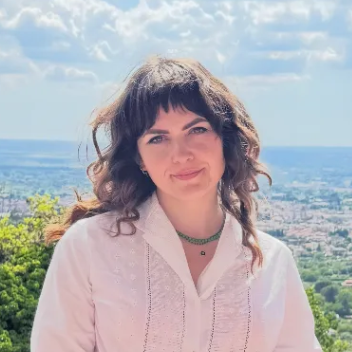The winning short story in the inaugural Freewrite 500 flash fiction competition is "High Holy Days" by Brie Ripley Sparks.
Read the story here and then check out our interview with Brie.

The halal butcher closes at nine, but the streetlights out back are always lit. A row of dumpsters lines a wall, fragrant with bones and gristle, and that’s where I leaned my bike.
He arrived late, as usual. Always in that long black coat buttoned tight even in summers. He waved with two fingers in a gesture that felt casual but practiced.
“Evening,” I said.
“Good evening to you, Bud,” he echoed. He had a way of saying it that made it sound like both greeting and judgment.
We traded neatly folded cash for a baggie full of greens. Swift and silent.
I sparked a joint, passed it over, and took my usual seat on a milk crate left next to the recycling bins. It was cracked but still pretty sturdy. He gently took the joint, sat on his usual milk crate, inhaled, coughed, then laughed.
“You hear about the new pope?”
I shrugged. “I don’t really read the news.”
“Chicago guy,” he said. “South Side. That’s where I’m from, actually.”
“Small world. You know him?” He shook his head. “Not personally. Still feels strange, though. Like finding out somebody from the neighborhood made it big.”
He leaned back against the brick wall, eyes half closed. For a second I imagined him in some other setting: marble floor, candles instead of fluorescents. He spoke with that odd mix of certainty and hesitation, like every sentence had to be measured for both truth and consequence.
“Chicago’s full of characters, huh?” I asked.
“Saints and sinners both.” He chuckled at himself, then took another drag.
The lot hummed with the buzz of the light, the faint metallic clatter from inside the butcher shop as someone hosed down a counter. Out here, it was just us. Two men with nothing in common, except the ritual of smoke and talk.
“Think he’ll be able to do anything about…all of this?” I asked, gesturing at the world around us. There were billboards for crypto scams and violence-baiting cable TV shows, but also woods and grassy fields nearby.
He tilted his head. “Maybe. But the world’s never short on that. Sometimes the job isn’t to fix it. It’s just to keep showing up.”
He said it like someone who’d spent a lifetime showing up in rooms no one else wanted to enter.
I took the joint back, pulled hard to put out the cherry, and made sure it was cold before I pressed it into his hand. “Keep that one. You’ll need it for your late night. It feels like you’ll have one of those again.”
He tucked it away without protest. That was our rhythm: I slipped him something extra, he slipped me some line that sounded half like a proverb, half like advice.
I swung my leg over the bike and pushed off.
“See you next week,” I heard from behind me.
I stuck a hand up in the air and waved at my favorite regular.
“Later, Father,” I yelled back with a smirk.





























